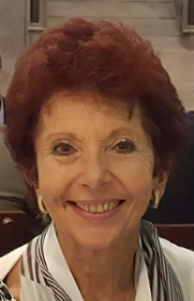13 February 2018
Interview with... Adele Scarani Pesapane - President of "8 october Foundation"
President of "8 october Foundation"
[Cleared n°1 - anno XV - january 2018]
President of "8 october Foundation"
[Cleared n°1 - anno XV - january 2018]

8 October 2001, 17 years later. What has changed in national aviation safety?
The accident that occurred on 8 October 2001 was a tragic event for all the families affected. A time of tremendous anguish and anger for the people involved and, similarly, a profound shock to the Italian air transport system. But it was precisely as a result of this dramatic event and the feelings of despondency and defeat that accompanied it, that the families of the victims, led by the late Paolo Pettinaroli, managed to find the strength to set up a Committee and a Foundation. This also led to the development of a cultural movement based on the importance of Safety values which enjoyed the ongoing support and assistance from all committed stakeholders, such as ENAV, and allowed our country to become a global benchmark for Flight Safety. The last two international conventions organised by the Foundation, with the participation of the most important entities involved in global air transport governance, are a clear demonstration of the results and recognition it has achieved.
So what is your relationship with ENAV and what are your thoughts about what could be done together in terms of aviation safety?
It is a positive relationship, as it always has been over the years, leading to closer cooperation and a shared purpose between the families of the victims, the professional experts who took our case to heart and the Company itself. ENAV has shown itself to be and is for us one of the most important interlocutors focussing on ongoing improvements in aviation Safety in Italy and abroad, and is also a privileged partner and an attentive and committed supporter in our various projects aimed at organising international conventions on Safety and our other communication activities on aviation culture.
What's the current situation with Safety in Italy?
Recent statistics published by ICAO and IATA for 2017 show that the air transport system, particularly within the European Union, is continuing to achieve ever higher goals and standards of Safety. And, of course, Italy contributes towards this important result. However, in recent years, our national system has not been immune to accidents, though fortunately without any loss of human life. Therefore, these events, combined with the various growing and ever stricter complex, regulatory, operational and financial needs, that accompany air travel, require unceasing attention and a more precise, decisive and effective unity of purpose from all the actors involved in order to consolidate a “group feeling” and to create a common network which includes the need to put one person at the heart of the sectoral development: the passenger. This is the only way that we will be able continue to break record after record in terms of ongoing improvement.
What are the Foundation's current priorities and future projects?
The Foundation and its Technical Task Force continue to work without interruption, both at a national and international level, in order to promote discussions and exchanges of views, ideas and information among the industry's experts, working in close contact with leading players such as, to mention just a few, ICAO, the Flight Safety Foundation, ENAC and, of course, ENAV. At the same time, however, I am aware of the need to share aviation culture principles and, through these, the principles of a safety culture with the youngest members of society and the civil community in general. This is why we have a growing commitment towards taking part in conventions, seminars and events, where ideas and views are shared, organised by Universities, Schools, Foundations and Associations on the topics I've just mentioned. But that is not all. Moving on from the experience of those moments of grief that the accident forced us to live through, the Foundation has also wanted to contribute towards providing assistance to all those who may be victims of a plane disaster. We have already achieved a number of significant results, again with considerable support from all concerned, and this is why we will continue to work in this direction, with the ambitious aim of creating the first national assistance service in airports for air accident victims and their families.
Where would you like to see improvements on the aviation Safety front?
As mentioned before, the statistics are encouraging. Nevertheless, it would be wrong, and in some respects dangerous, to believe that these results mean that the battle has been won. It is obvious, therefore, that the Foundation will continue to fight for improved communication between the various “souls” involved in the governance of air transport and will never cease to point out that, regardless of the technological improvements that our foundation will always strive to propose, the only way to prevent a repetition of the event of 8 October 2001, will be through a precise assumption of joint responsibility and shared purpose. We also intend to foster this approach, together with the Volare Sicuri (Fly Safely) project, in the field of general aviation and sports and recreational flying that, unfortunately, does not enjoy the same positive statistics when you take into consideration its accident rate and the number of lives lost.


